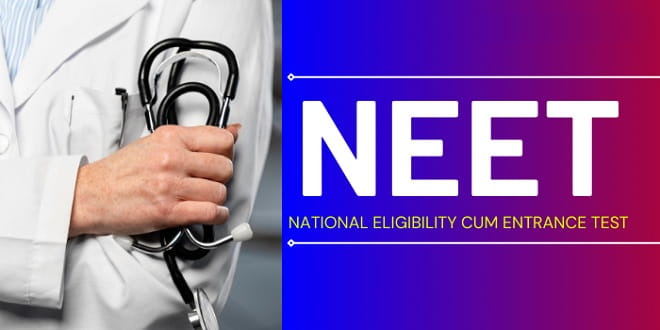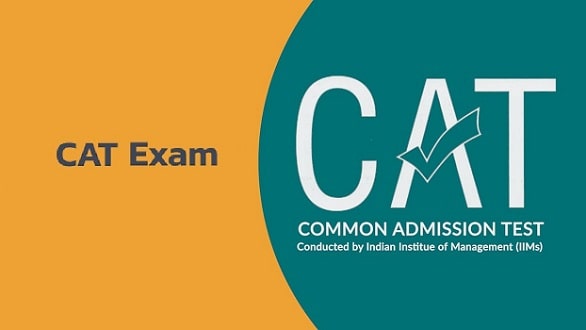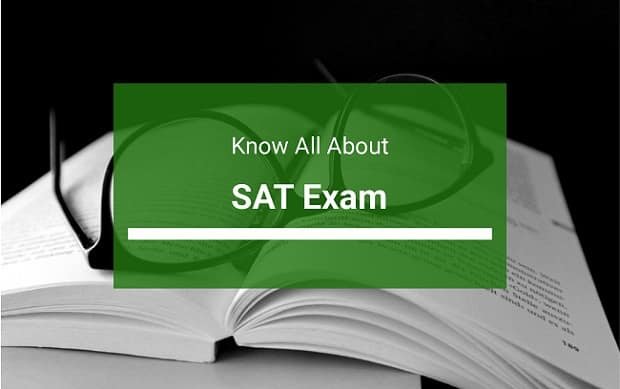NMAT (National Management Admission Test) or NMAT by GMAC is a national level entrance exam for MBA admissions at NMIMS University and other reputable B-Schools in India and overseas.Until GMAC took charge, NMAT gets administered by the Narsee Monjee Institute of Management Studies.
The NMAT gets created with the ease of the test-taker in mind. During the exam window, candidates can use the NMAT scheduling option to select their preferred exam day and location.It is permitted to pick the favourite day in a test window. We need to plan the test, time, and venue self-start depending on seat accessibility at the desired test facility. NMAT shares some characteristics with GMAT.
The following are some of the other components of the NMAT exam:
- In August, the Graduate Management Admission Council (GMAC) get expected to provide exam information.
- GMAC’s NMAT gets scheduled to take place between November and January.
- Last year, the NMAT was administered in two phases: at exam centres and in an online proctored mode; this may get repeated this year.
- Last year, GMAC changed the NMAT exam pattern. From 120 to 108 questions, the total number of questions has to get lowered.
- More information about the NMAT by GMAC, including eligibility requirements, timetable, participating universities, and the admission procedure, may be found in this article.

NMAT Eligibility Requirements
- The authorities of the test have certified these credentials for NMAT. Candidates must satisfy the qualifying requirements before applying for the entrance examination.
- In any strip of 10+2+3 or four years of education, an applicant has to obtain a degree.
- In the final year of high school, you should receive at least a 50% average.
- Candidates who are awaiting results or who are in their last year of high school may also apply for the NMAT. Admission is given temporarily until graduation, and a qualifying examination certificate is received.
Before enrolling for the test, candidates should verify the eligibility requirements of each NMAT participating college. Applicants must choose five institutes of their choice for admission when applying, and those institutes may have varying entrance requirements.
The NMAT Application Process
Filling out the NMAT application form, receiving the NMAT admit card, taking the NMAT test, receiving the NMAT result, and going through the NMAT selection process (Group Discussion and Personal Interview) of the shortlisted applicants are all part of the NMAT admission procedure. The NMAT admissions process gets broken down into stages, which get briefly discussed below.
- Application for the NMAT
Filling out the NMAT application form is the initial step in the admissions procedure. The NMAT application form must get completed within the time limit. NMAT Admit cards get only given to those who pass the exam. To complete the online registration procedure for the NMAT, applicants must first generate a login ID and password. It costs Rs 2,000 to apply (excluding GST). The charge can get paid with a debit card, a master card, a mobile wallet, or other methods online.
The test rescheduling option is available in the student account when the registration procedure gets completed. Candidates have to apply for the NMAT exam rescheduling option within 72 hours of the test day and schedule to reschedule the test. Steps for rescheduling the NMAT can get performed using the same student account. The price for a retake is Rs 2,000, while the rescheduling fee is Rs 1,100.The NMAT late registration cost will be Rs 2,500. The NMAT 2020 second phase application cost was Rs 2,300. The price for the application’s second step was Rs 2,300 plus relevant taxes.
- Issuance of NMAT Admit Card
After completing the NMAT application procedure and paying the application cost, students may reserve their preferred exam slot and download the NMAT admit card at the same time.
- Examination of NMAT
NMAT gets performed in both the computing test (CBT) and the IPT model, where applicants can take the exam from home online on a remote basis. In 120 minutes, the test participants must solve 108 MCQs. In the NMAT examination, there is a sectional period. The online examination consists of three portions which include linguistic abilities, quantitative abilities, and logical reasons.
- NMAT Result Announcement
GMAC publishes the NMAT results on its website. Using login credentials outcome may be viewed online. Candidates should retain their scorecards and print out their results for future use.
- The selection process for NMAT
The next step of NMAT selection is the group discussion and personal interview (GD & PI) round organized by the participating institutes.
A WAT (Writing Ability Test) or Case Disk (CD) round may get decided by the participating institution rather than the usual GD round. The ultimate admission decision gets based on the combined NMAT and GD-PI round result.
Application fee for NMAT
For everyone, the NMAT application is the same. You have to provide Rs 2000/- if you signed up for NMAT before the first week of October (with additional taxes). You will have to pay a late charge of Rs 500 together with a fixed fee for registration, namely Rs 2000/- if you register between the first week of October and the second week of October. The total cost for late registration is, therefore, Rs 2500/-. If you wish to try NMAT more than once, you must pay an extra price of Rs 2000 for each attempt (plus other fees). You need to pay an extra fee of Rs 1100/- to rearrange your NMAT at a different date (with additional taxes).
Syllabus NMAT
NMAT has no defined syllabus, like other MBA Entrance Exams. Based on the previous NMAT exams, our specialists developed a thorough list of subjects for your examination.
The most prevalent themes in NMAT have been, according to the study of the previous two years:
- Data Interpretation and Quantitative Aptitude
It covers the conceptual underpinning of 8-10th standard maths. That part would cover not only math-based questions but also data interpretation and data adequacy.The Quant section of the NMAT under the GMAC Syllabus remains modest. Even so, a few tough questions are thrown in at random across the NMAT by GMAC course. The quantitative part has 36 questions and a time limit of 52 minutes for each applicant.
- Skills in language
The subject on Language Comprehension, Verbal Capacity, and English language Skills gets included in the NMAT syllabus of NMAT by GMAC review. In this phase, there are 36 questions that you need to finish within 22 minutes. The language abilities part of the NMAT curriculum tests you on three broad segments, notably vocabulary, which cover the following main subjects. For an indication of the NMAT verbal section curriculum, please see the chart below.
- Reasoning logically
This part provides a thorough assessment of the test taker’s analytical, critical, and logical thinking abilities. Its purpose is to assess your ability and indirectly synthesize the information provided in the question without verifying its accuracy. To see patterns, comprehend family trees, code and decode, and have a feeling of complicated directions, you should brush up on your visual and logical thinking abilities.
Summary
GMAC NMAT is one of the country’s most prominent MBA entry tests. NMIMS accepts the NMAT entrance score together with several other prominent B-schools. Of course, it’s a popular subject each year among India’s MBA candidates. The NMAT examination has a pattern distinct from that of other entrance examinations in the country.
However, you can crack it, as you do a good preparation approach and commitment, just like any examination. In addition to recalling boatloads of formulas, work on concepts clarity. Exercise at least 45 minutes to 1 hour each segment every day.If something is too simple for you, you may feel too confident and carelessly accept it, which may reverberate on exam day. You may always obtain aid from a teacher, colleagues, or any other media if you think a portion is challenging. Also, do not underestimate the importance of ridiculous exams.

Rahul Kumar is a passionate educator, writer, and subject matter expert in the field of education and professional development. As an author on CoursesXpert, Rahul Kumar’s articles cover a wide range of topics, from various courses, educational and career guidance.



